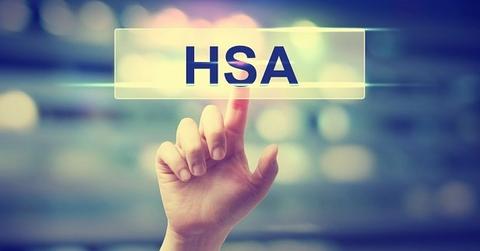With Triple Tax Advantage, It's a No Brainer to Max Out Your HSA
While planning for retirement and healthcare expenses, should you max out your HSA? What's the triple tax advantage?
Nov. 12 2021, Published 2:20 p.m. ET

Healthcare costs represent a major spending category for those in retirement. Therefore, it makes sense to plan for the costs in advance. Unlike other well-known retirement plans like 401(k) and IRA, an HSA (Health Savings Account) can also qualify as a potent retirement tool. Many financial experts advise maxing out your HSA before making contributions to other retirement plans.
An HSA is specifically designed for paying healthcare costs. It's a tax-advantaged account that's created for people who get their insurance coverage through high-deductible health plans.
How does an HSA work?
The contribution to this account could be made by an employee or employer. However, they have an annual cap. You're eligible for an HSA even if you are self-employed. As of 2021, the maximum contribution for an HSA is $3,600 for an individual and $7,200 for a family. People who are 55 years or older by the end of the tax year can make catch-up contributions of an additional $1,000. The contribution limit to HSA will rise to $3,650 for an individual and $7,300 for a family in 2022.

You can use an HSA to pay for qualified medical expenses, which gives you a significant discount on your healthcare costs. It includes current or future qualified medical, dental, vision, prescription, and deductible expenses. However, there's a steep penalty if you use the money from this account for any purpose other than paying for medical expenses. Not only will you be liable to pay income tax on the funds withdrawn but there's an additional 20 percent penalty.
Here's something interesting. If you're 65 or older, you can use HSA like a traditional retirement savings plan. After that point, you're exempt from the 20 percent penalty even if you withdraw funds for non-medical expenses. You just end up paying income taxes, which is similar to what you’ll pay even under a traditional IRA or 401(k).
Who is eligible for an HSA?
Not everybody is eligible for an HSA. You must be covered by a high-deductible health plan, which basically requires you to pay a significant portion of your healthcare costs upfront before the insurance kicks in. The plan must require that you pay at least the first $1,400 ($2,800 for family plans) and a maximum of $7,050 ($14,100 for families) as of 2022 to qualify for an HSA.
Should you max out your HSA?
The tax advantages of an HSA are good, which leads many financial planners to suggest maxing out your HSA before contributing to an IRA. So, what exactly are the tax benefits of an HSA? The first and foremost is that you get a tax deduction when you contribute funds.

You don’t pay any taxes on the money you withdraw to pay for qualified medical expenses. With an IRA, you get a tax advantage either when you contribute or when you withdraw, while HSA provides both of the benefits. Also, with an HSA, there isn't a tax on investment gains or interest while the money is in your HSA.
With triple tax benefits of money going in tax-free, growing tax-free, and coming out tax-free, there isn’t any reason for you not to max out your HSA before funding your 401(k) or any other retirement account.
